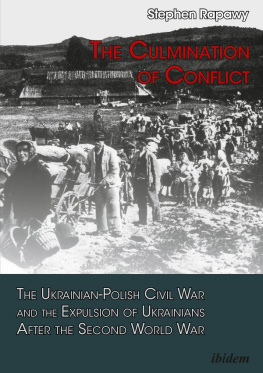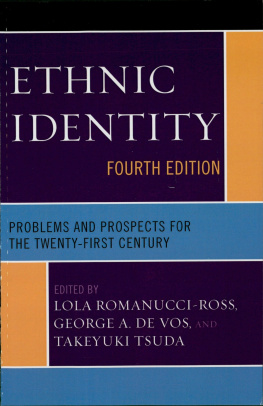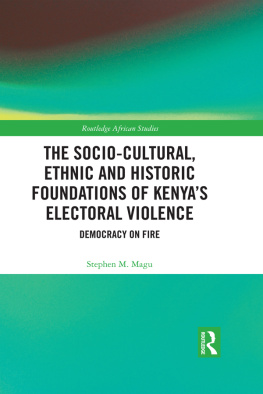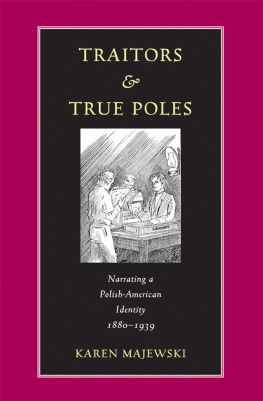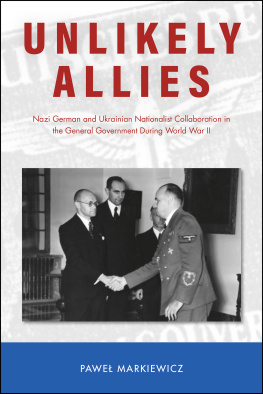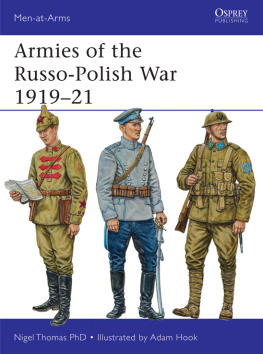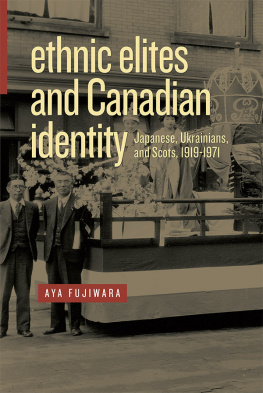Acknowledgements
My desire to write a book about the historic Polish-Ukrainian co n flict and the post-World War I I deportations comes from a longstanding and deeply pe r sonal interest in the topic. In 1947, when I was twelve years old, my fa m ily and I were deported from the Ukrainian districts in southeast Poland and resettled in western Poland during "Operation Vistula". Because my parents were American citizens, I was able to emigrate to the United States after the deportation. Over the years I considered writing about these events, and even considered this as a dissertation topic in graduate school. However, the available information at the time was derivative in nature, and because I had a full-time career, I had insufficient time to conduct on-site primary research. After retiring from the U. S. Census Bureau, I finally found the time to begi n researching and writing. It was also a fortuitous time to start working on this topic since both Polish and Ukrainian archives became accessible after the collapse of communism. I had visions of spending years in Polish and Ukrainian archives but se r endipity again came to the rescue. After the archives became accessible, Yevhen Misylo began a systematic search of Polish archives related to the expulsion of Ukrainians from the eastern districts in Poland. The co l lected documents were published in three volumes with numerous hel p ful annotations. At about the same time, Volodymyr Serhiichuk searched Ukrainian a r chives on the same subject and published his findings in a large compe n dium. Both scholars made significant contributions to my understanding and provided this researcher with necessary and readily available doc u ments.
Once I began writing the manuscript, it quickly became a cooper a tive affair. Therefore, I wish to express my gratitude to a number of pe o ple who assisted me in this enterprise. My wife Luba spent countless hours stoically typing the handwritten manuscript with numerous chan g es, while my son Michael assisted me with various computer issues. Jacqueline Nolan, a cartographer in the Geography Division at the L i brary of Congress, graciously prepared two maps in the manuscript. Ar t ist Jon Coulter enhanced the cover photograph that depicts villagers b e ing deported during Operation Vistula in April 1947, and graphics artist Oleh (Alex) Gyba enhanced many other photos that appear in the book. Most of all, I wish to express my deep appreciation to Corinna Wengryn Caudill not only for editing the manuscript, but also for reading it car e fully and making numerous suggestions that significantly improved the quality of the book. Finally, I wish to thank the staff of ibidem Press for preparing th e manuscript for printing.
P reface
In recent years, there have been several English-language public a tions on the subject of the post World War I I deportations of Poland ' s Ukrainians. It has only been during the last two decades that the subject could finally be discussed openly, and state archives have been accessible to scholars r e gardless of their political viewpoints. Since then, a number of mon o graphs and conference materials have been published in numerous la n guages and with varying interpretations. For Polish and Ukrainian a u thors, the interpretation of events greatly varies and usually falls along ethnic lines, with individual polemics corresponding to the nationalities of their authors. With respect to the history of Ukrainians in Poland after World War II, the most comprehensive treatment was given by Grzegorz Motyka in his Polish la n guage book Tak Bylo w Bieszczadach (It Happened in the Bieczczady) that describes the pre-war conflict, partisan w arfare, and the deportations. Additional valuable information is provided in a 10-volume collection of conference papers entitled Polska-Ukraina: Trudne Pytannia ( Poland-Ukraine : Difficult Questions .) These essays were pr o duced through conferences attended by Polish and Ukrainian scholars b e tween 1999 2006 who examined the partisan warfare in that period as well as various aspects of the deportations.
More recent publications provide a great deal of useful information that debunks the communist narratives of the past. The authors typically discuss the events of the Second World War and provide detailed descriptions of the mechanics of the deportations. However, most tend to omit important historical details. Since these works are usually focused on the twentieth century and emphasize the rise of modern Ukrainian nationalism in Poland and Ukraine , the lengthy history of internecine warfare between Poles and Ukrainians is often treated with only a cursory discussion. The growth of nationalism, the formation of national states, and widespread deport a tions have moved many scholars to see a close relation ship between all three phenomena. As a result, none have comprehensively examined the events as part of a longer historical process that has occurred between the Polish and Ukrainian ethnic groups in Europe.
Until the collapse of communism in 1991, the mass deportation of Poland ' s Ukrainians after World War I I was a topic that generally received only cursory treatment in the historical literature of both Poland and Ukraine . When it was mentioned in periodicals or other sources, both Poland and the Soviet Union presented the accep t ed communist party line as such: an agreement existed between the two countries; the resettlements had been voluntary; resistance to the rese t tlement was conducted by UPA , who had been Nazi collaborators; and the Soviet Union and Poland had taken nece s sary measures to reduce ethnic internecine violence along the border.
The exception to this lack of examination was a lengthy monograph published in 1973 that was co-authored by Antoni Szczeniak and Wiesaw Szota . The two Polish writers examined Ukrainian-Polish rel a tions between the wars, the internecine conflict during the war, and the several years of fighting in the post war period before the Ukrainian i n surrection in Poland was suppressed and the Ukrainian population was removed. Although the writers advanced the standard communist vie w points, Szczeniak and Szota provided detailed information on the topic, frequently using archival materials that were not available to other wri t ers at th at time. Regardless of the authors ' ideological biases, three i m portant observations in the monograph reveal that the insurgency was the result of a popular uprising against Soviet and Polish communist rule in post-war Poland. First, the insurgency in post-war Poland lasted for more than three years, which could only have been possible with the support of the local Ukrainian population. Second, the insurgency was a sizeable force rather than merely the work of a few malcontents. Third, the mon o graph elucidates the Polish government ' s prima facie justification for Operation Vistula ( A kcja " Wisa " ): UPA could not be destroyed wit h out the remo val of the Ukrainian population. One of the most important works is American political scientist John Armstrong ' s book Ukrainian Nationalism, first published in 1955, which takes a detached view in d e scribing the development of Ukrainian nationalism in the twentieth ce n tury and the formation of the Ukrainian Insurgent Army during the Se c ond World War . The book, which was su b sequently updated in several editions, is still valuable and informative despite the fact that it was published before much of the current archival material became available. Norman Davies ' God ' s Playground: A History of Poland, Vol. II , 1795 to Present , first published in 1982, provides va l uable information on the formation of the Polish underground during the war and the communist takeover of Poland in the post-war period.
Because Ukraine emerged as a political entity in the twentieth century, many scholars limit the discussion of the Polish-Ukrainian conflict to

